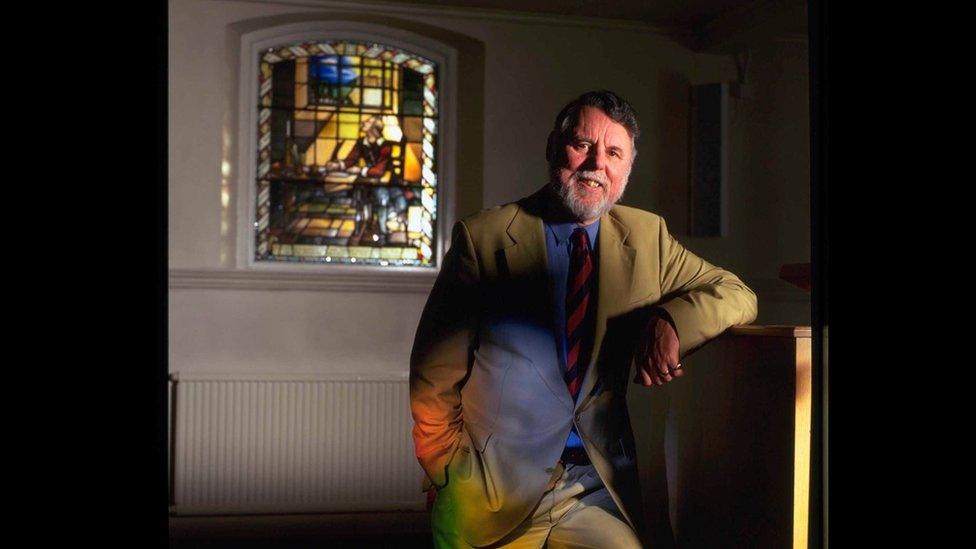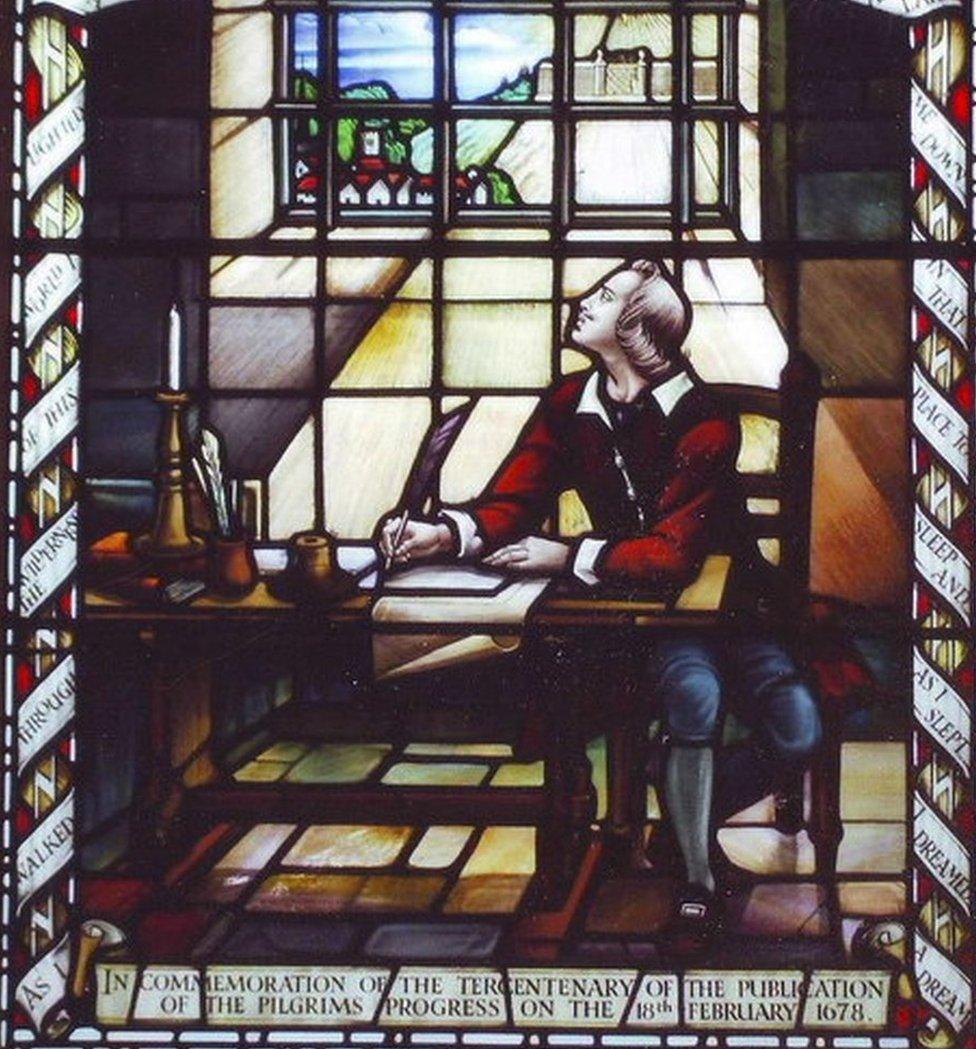Terry Waite: Sender of postcard to hostage recalls press frenzy
- Published

Terry Waite has since met Joy Brodier and visited the stained glass window at the Bunyan Meeting church in Bedford
A woman whose postcard to Terry Waite gave him hope while he was being held captive in Beirut has told how she was "besieged" by the press on his return.
The Archbishop of Canterbury's envoy was freed on 18 November 1991 after being taken hostage in Lebanon in 1987.
In in his first speech back in the UK, he mentioned the postcard, depicting Christian writer John Bunyan in prison.
Sender Joy Brodier said she had initially "kept quiet" about it but her mother had revealed her involvement.
Mr Waite, now 82, was working on behalf of Dr Robert Runcie to negotiate the release of several British hostages when he himself was captured by Hezbollah.
Released after 1,763 days, he had spent much of the previous five years in solitary confinement.
Arriving back at RAF Lyneham in Wiltshire, Mr Waite, who now lives in Bury St Edmunds, Suffolk, described to the waiting press how a postcard delivered "out of the blue" by a guard had kept his spirits up.

Joy Brodier said she sent the card because she was concerned Mr Waite's captors would tell him that nobody cared about him
The card, from Bedford, showed a stained glass window at the Bunyan Meeting church and featured the town's famous resident and writer of Pilgrim's Progress, John Bunyan, in prison.
"I looked at that card and I thought 'My word Bunyan, you're a lucky fellow - you've got a window out of which you can look and see the sky, and here am I in a dark room,'" he said.
"There was a message from someone who I didn't know simply saying 'We remember, we shall not forget, we shall continue to pray for you and to work for all people who are detained around the world.'"
Ms Brodier, who now lives in France, said she had been concerned Mr Waite's captors would tell him nobody cared about him.
"I figured [Hezbollah] were a terrorist group who had to obey on every level and if a postcard arrived, no-one would dare to throw it away so I [addressed] it 'Care of Hezbollah, Beirut, Lebanon,'" she said.
"He didn't mention my name [in the speech] so it could have been anybody in Bedford... so I kept quiet."
'The phone kept ringing'
But Ms Brodier told her mother who mentioned it to a pastor in Lowestoft, who in turn told the Eastern Daily Press newspaper.
"The next morning I couldn't put the phone down; it kept ringing," Ms Brodier said.
"Every newspaper around the world wanted the story. We were besieged but I hadn't said anything.
"For a long time I didn't know if it was my postcard. I didn't know if I was usurping the place of somebody else who might have sent it."
She eventually received a letter from Mr Waite confirming he had been talking about her postcard, and he organised a meeting.
Only then could she relax.
"He is a big chap with a big sense of humour," she said of their meeting.
And she said she had learned one particular lesson from the experience: "Don't tell your secrets to your mum!"

Find BBC News: East of England on Facebook, external, Instagram, external and Twitter, external. If you have a story suggestion email eastofenglandnews@bbc.co.uk
- Published18 November 2021
